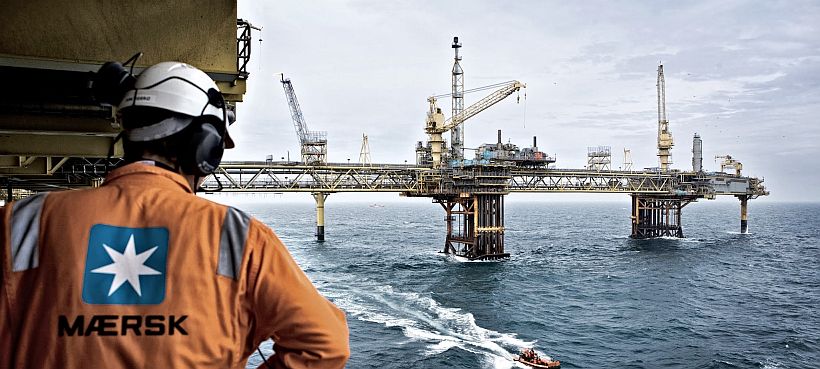
Head of its former energy business departs as almost all of the oil-related businesses are now separated from container ship giant.
The number two man at Maersk (Nasdaq OMX: MAER) is departing as the Danish company largely completes the divestment of its energy business.
Claus Hemmingsen, a 38-year veteran of Maersk, will depart from the world’s largest shipping company by the end of June, the company said today. In addition to sitting behind Chief Executive Officer Soren Skou, Hemmingsen headed Maersk’s energy division since 2016. That division will also close by June.
Hemmingsen’s departure is the coda to the container ship giant’s foray into the oil business. Starting with an oil drilling concession in the North Sea in 1962, Maersk’s oil business spanned exploration and production in multiple international offshore blocks, third-party drilling services for other oil companies, supplying offshore oil drilling platforms and a fleet of oil products tankers.
But the collapse of oil prices in 2014 put Maersk’s energy business underwater, a development that coincided with the downturn in container shipping demand.
Chairman of the Board of Directors Jim Snabe addressed Maersk’s difficulties over the last decade in both container shipping and energy business, noting that the company’s total revenue fell 28 percent from 2012 to 2016 to $35.5 billion while operating profit fell an even faster 46 percent to $6.8 billion.
Snabe said the capital spending for its energy business exceeded income in three of those five years. Since Maersk’s oil business did not have significant market share in any of those segments, it decided to start selling off the units.
“Our overall business did not generate satisfactory profit and return,” Snabe said. “The historical conglomerate benefits disappeared and turned into risks. It was high time to revise the strategic direction and find a way to reinvent Maersk.”
The revision entailed Maersk selling its tanker fleet for $1.2 billion to a Maersk family-run holding company and the $7.8 billion sale of its oil exploration business to Total (NYSE: TOT).
The third piece of that spin-off will be the listing of Maersk’s drilling business, which will start trading tomorrow on the Copenhagen stock exchange. The offshore supply vessel service will temporarily remain part of Maersk as weak demand in the sector forced the company to end plans for a spin-off.
“The separation of the energy-related businesses is a condition for a strong foundation for Maersk,” Snabe said, adding that there is a “good future for each of the individual energy businesses.”
With Hemmingsen’s departure, the company’s executive board will consist of CEO Skou, Chief Financial Officer Carolina Dybeck Happe, Chief Commercial Officer Vincent Clerc and Executive Vice Presidents Soren Toft and Morten Engelstoft.
